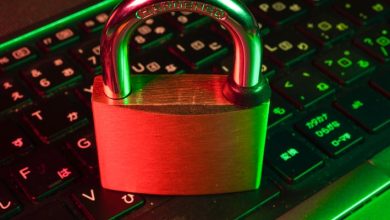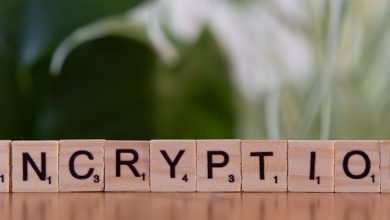How to Prevent Crypto Theft and Hacks

- Understanding the risks of crypto theft and hacks
- Best practices for securing your cryptocurrency assets
- Common methods used by hackers to steal cryptocurrencies
- Tips for choosing a secure cryptocurrency wallet
- The importance of using two-factor authentication for crypto security
- How to recognize and avoid common crypto scams
Understanding the risks of crypto theft and hacks
It is crucial to understand the risks associated with crypto theft and hacks in order to effectively prevent them. Cryptocurrency theft occurs when hackers gain unauthorized access to crypto wallets or exchanges, stealing digital assets from unsuspecting users. These thefts can result in significant financial losses and damage to one’s reputation in the crypto community.
One common method used by hackers to steal cryptocurrency is through phishing attacks. In these attacks, hackers send fraudulent emails or messages pretending to be from legitimate crypto companies, tricking users into revealing their private keys or login credentials. Once obtained, hackers can easily access and drain the victim’s crypto accounts.
Another risk to be aware of is crypto exchange hacks, where hackers target crypto exchanges to steal digital assets stored on their platforms. These hacks can result in millions of dollars worth of cryptocurrency being stolen in a single attack, causing chaos and panic in the crypto market.
It is important for crypto investors to take proactive measures to protect their digital assets from theft and hacks. This includes using secure crypto wallets, enabling two-factor authentication, and avoiding suspicious links or emails. By staying informed and vigilant, crypto users can reduce the risk of falling victim to crypto theft and hacks.
Best practices for securing your cryptocurrency assets
When it comes to securing your cryptocurrency assets, there are several best practices you can follow to minimize the risk of theft and hacks. By implementing these strategies, you can protect your investments and ensure that your digital assets remain safe and secure.
- Use a hardware wallet: One of the most secure ways to store your cryptocurrency is by using a hardware wallet. These devices store your private keys offline, making it much harder for hackers to access your funds.
- Enable two-factor authentication: Adding an extra layer of security to your accounts with two-factor authentication can help prevent unauthorized access. This typically involves entering a code sent to your phone or email in addition to your password.
- Keep your software up to date: Regularly updating your wallet software and any other cryptocurrency-related applications is crucial for staying protected against security vulnerabilities.
- Avoid public Wi-Fi: When accessing your cryptocurrency accounts or making transactions, it’s best to avoid using public Wi-Fi networks. Hackers can easily intercept data on these networks, putting your assets at risk.
- Use strong, unique passwords: Creating complex passwords that are unique to each of your accounts can help prevent unauthorized access. Consider using a password manager to securely store and generate passwords.
By following these best practices, you can significantly reduce the likelihood of falling victim to crypto theft and hacks. Remember that the security of your cryptocurrency assets is ultimately your responsibility, so it’s essential to stay vigilant and proactive in protecting your investments.
Common methods used by hackers to steal cryptocurrencies
There are various methods that hackers use to steal cryptocurrencies from unsuspecting victims. It is crucial to be aware of these techniques in order to protect your crypto assets and prevent theft and hacks.
- Phishing Attacks: Hackers often use phishing emails and websites to trick crypto users into providing their private keys or passwords. Be cautious of any unsolicited emails or messages asking for your personal information.
- Malware: Malicious software can infect your computer or smartphone and steal your cryptocurrencies without your knowledge. Make sure to use antivirus software and keep your devices updated.
- Sim Swapping: Hackers can steal your cryptocurrencies by porting your phone number to a new sim card and gaining access to your crypto wallets. Enable two-factor authentication to add an extra layer of security.
- Exchange Hacks: Cryptocurrency exchanges are often targeted by hackers who can breach their security systems and steal funds from users accounts. Choose reputable exchanges with a proven track record of security measures.
By being aware of these common methods used by hackers to steal cryptocurrencies, you can take the necessary precautions to protect your crypto assets and prevent theft. Stay vigilant and always prioritize security when dealing with cryptocurrencies.
Tips for choosing a secure cryptocurrency wallet
When it comes to choosing a secure cryptocurrency wallet, there are several factors to consider to protect your digital assets from theft and hacks. Here are some tips to help you select the right wallet for your needs:
- Research different types of wallets: Before choosing a cryptocurrency wallet, it’s essential to research the various types available, such as hardware wallets, software wallets, and paper wallets. Each type has its own security features and level of convenience, so make sure to choose one that aligns with your preferences.
- Check for security features: Look for wallets that offer advanced security features, such as two-factor authentication, multi-signature functionality, and encryption. These features can help protect your funds from unauthorized access and cyber attacks.
- Read reviews and ratings: Before selecting a cryptocurrency wallet, take the time to read reviews and ratings from other users. This can give you valuable insights into the wallet’s security, ease of use, and customer support.
- Ensure compatibility: Make sure that the cryptocurrency wallet you choose is compatible with the digital assets you plan to store. Some wallets support a wide range of cryptocurrencies, while others are designed for specific coins.
- Backup your wallet: To prevent the loss of your funds in case of theft or hardware failure, always backup your cryptocurrency wallet. Store your backup in a secure location, such as a safe deposit box or encrypted USB drive.
- Keep your wallet updated: To protect your funds from security vulnerabilities, make sure to keep your cryptocurrency wallet software up to date. Developers regularly release updates to patch security flaws and improve performance.
By following these tips and choosing a secure cryptocurrency wallet, you can minimize the risk of theft and hacks and safeguard your digital assets for the long term.
The importance of using two-factor authentication for crypto security
Implementing two-factor authentication (2FA) is crucial for enhancing the security of your cryptocurrency holdings. By requiring users to provide two different forms of identification before accessing their accounts, 2FA adds an extra layer of protection against unauthorized access and potential theft. This method typically involves something the user knows (like a password) and something they have (like a mobile device or security key).
Using 2FA significantly reduces the risk of falling victim to phishing attacks, where hackers attempt to trick individuals into revealing their login credentials. Even if a cybercriminal manages to obtain a user’s password through phishing or other means, they would still need the second factor to gain access to the account. This additional step makes it much harder for hackers to compromise your crypto assets.
Furthermore, 2FA can help prevent unauthorized transactions by requiring confirmation from a secondary device or method. This means that even if a hacker gains access to your account, they would still need to pass through the second authentication step to complete any transactions. This extra verification step adds a critical barrier to protect your funds from being stolen.
How to recognize and avoid common crypto scams
When dealing with cryptocurrencies, it is crucial to be aware of common scams that can result in theft or hacks of your digital assets. By recognizing and avoiding these scams, you can protect yourself and your investments from potential harm.
One common crypto scam to watch out for is phishing attempts. Scammers may send emails or messages pretending to be from legitimate cryptocurrency exchanges or wallets, asking for your login credentials or private keys. Be cautious of any unsolicited communication asking for sensitive information, and always verify the sender’s identity before sharing any personal data.
Another prevalent scam in the crypto world is Ponzi schemes, where fraudsters promise high returns on investments but ultimately use new investors’ money to pay off existing ones. Be wary of any investment opportunities that seem too good to be true, and always do thorough research before committing your funds to any project.
Additionally, fake ICOs (Initial Coin Offerings) are a common tactic used by scammers to lure in unsuspecting investors. These fraudulent projects may have flashy websites and promises of guaranteed profits, but in reality, they are designed to steal your money. Before participating in any ICO, make sure to verify the legitimacy of the project and team behind it.
To avoid falling victim to crypto scams, it is essential to stay informed and educated about the latest tactics used by fraudsters. By being vigilant and skeptical of any offers that seem too good to be true, you can protect yourself and your assets from potential theft and hacks in the volatile world of cryptocurrencies.



